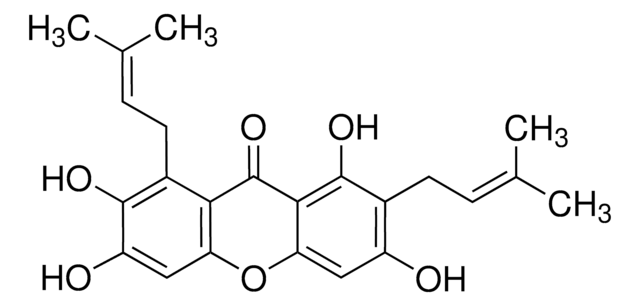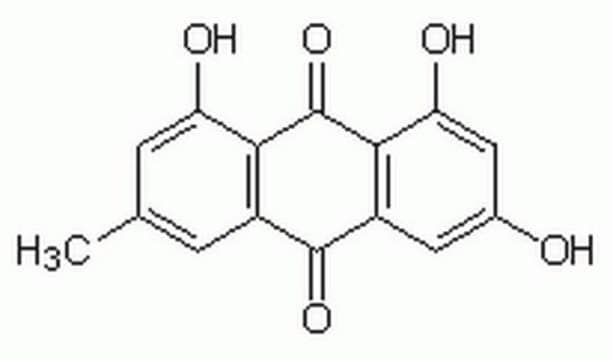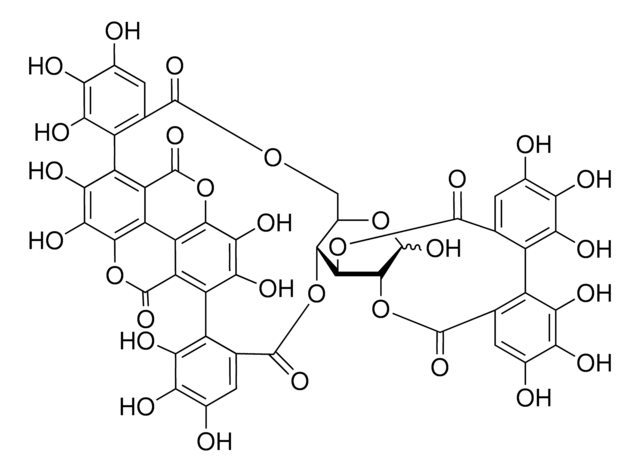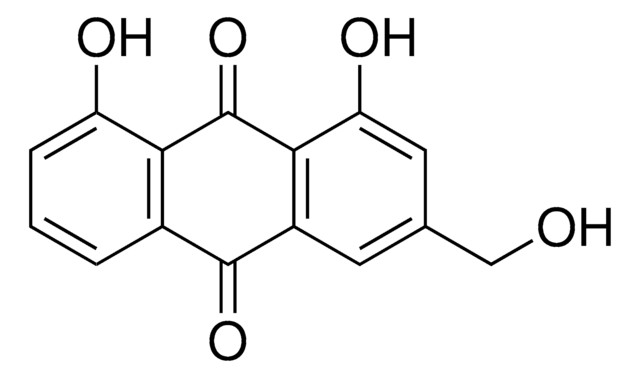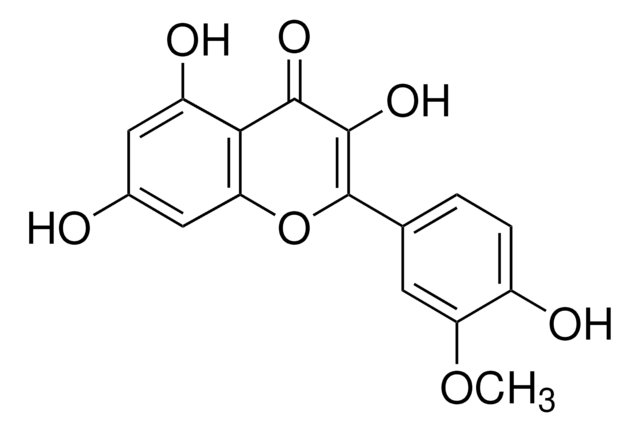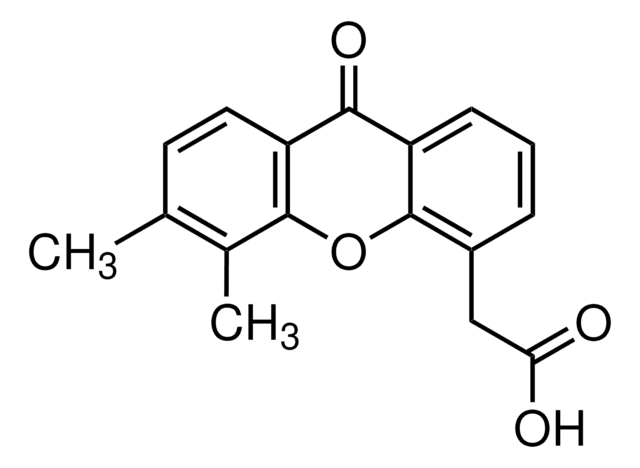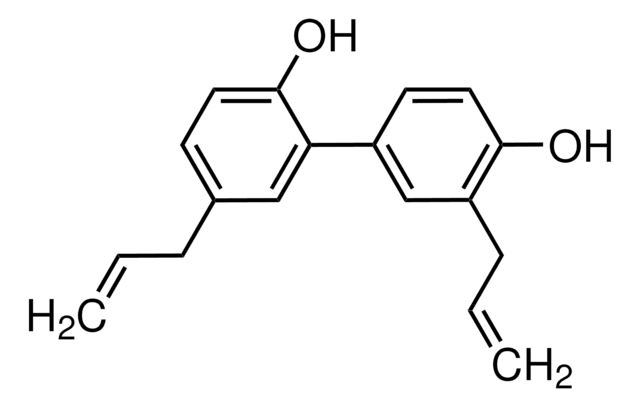M3824
α-Mangostin
≥98% (HPLC)
Synonym(s):
α-MG, alpha-Mangostin
About This Item
Recommended Products
assay
≥98% (HPLC)
form
powder
solubility
methanol: 1 mg/mL, clear, very light yellow
application(s)
metabolomics
vitamins, nutraceuticals, and natural products
storage temp.
2-8°C
SMILES string
COc1c(O)cc2Oc3cc(O)c(C\C=C(\C)C)c(O)c3C(=O)c2c1C\C=C(/C)C
InChI
1S/C24H26O6/c1-12(2)6-8-14-16(25)10-19-21(22(14)27)23(28)20-15(9-7-13(3)4)24(29-5)17(26)11-18(20)30-19/h6-7,10-11,25-27H,8-9H2,1-5H3
InChI key
GNRIZKKCNOBBMO-UHFFFAOYSA-N
Looking for similar products? Visit Product Comparison Guide
General description
Application
Biochem/physiol Actions
signalword
Warning
hcodes
Hazard Classifications
Acute Tox. 4 Oral
Storage Class
6.1C - Combustible acute toxic Cat.3 / toxic compounds or compounds which causing chronic effects
wgk_germany
WGK 1
flash_point_f
Not applicable
flash_point_c
Not applicable
Choose from one of the most recent versions:
Already Own This Product?
Find documentation for the products that you have recently purchased in the Document Library.
Customers Also Viewed
Our team of scientists has experience in all areas of research including Life Science, Material Science, Chemical Synthesis, Chromatography, Analytical and many others.
Contact Technical Service
